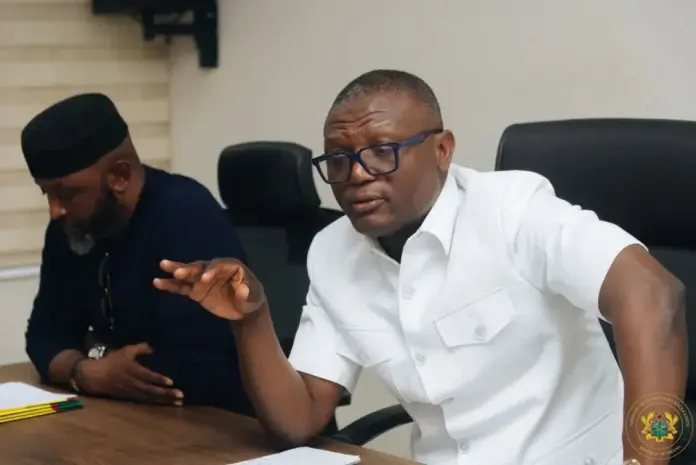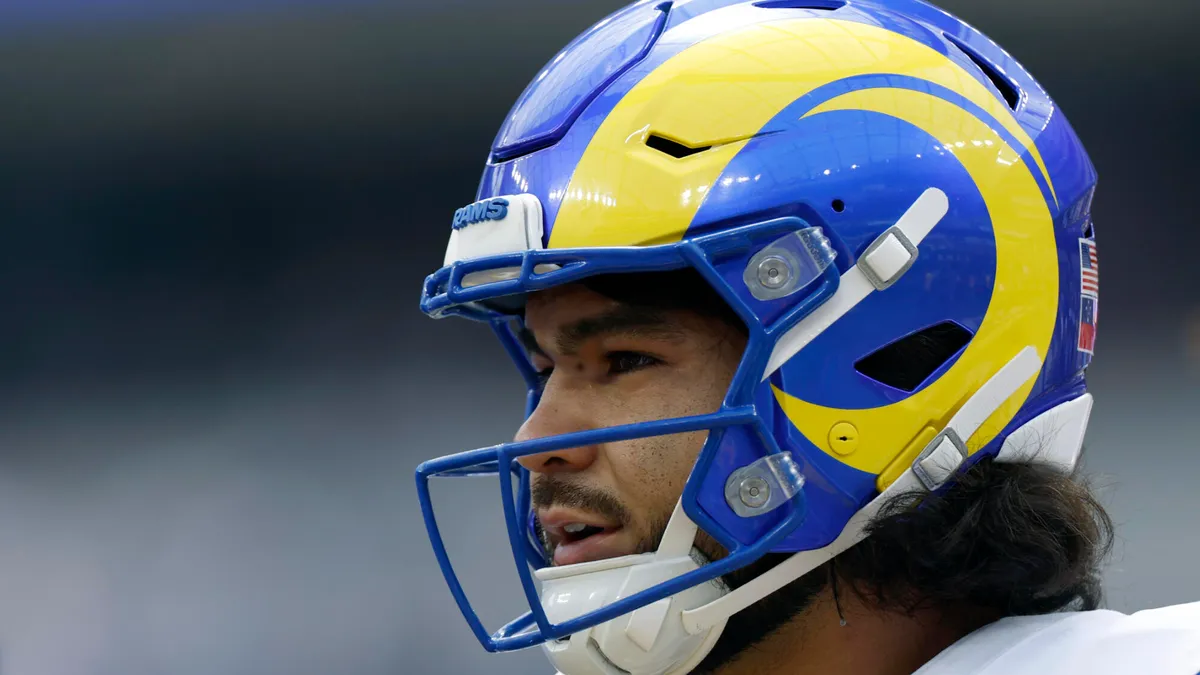By Ghana News
Copyright ghanamma

Sports and Recreation Minister Kofi Iddie Adams held crucial discussions with members of Ghana’s newly established Boxing Normalisation Committee on Thursday, setting the stage for the body’s official inauguration scheduled for Monday.
The September 26 meeting at the Ministry’s conference room, led by National Sports Authority (NSA) Director General Yaw Ampofo Ankrah, served as a final briefing session before the committee assumes its mandate to restore order to Ghana’s professional boxing landscape.
The formation of this normalisation body stems from the tragic death of Nigerian boxer Gabriel Oluwasegun Olanrewaju, who collapsed during a bout at Bukom Boxing Arena on March 29, 2025, and was later pronounced dead at Korle-Bu Teaching Hospital. The incident sent shockwaves through Ghana’s boxing community and prompted urgent calls for comprehensive reforms.
In response to the tragedy, Minister Adams commissioned an independent seven-member investigative committee chaired by retired Ambassador Major Amarkai Amarteifio. The panel, which included legal experts Peter Zwennes, Samuel Bartels, and Juliana Addo-Yobo, alongside boxing stakeholders Eddie Pappoe, Ekow Asmah, and Martin Engmann, submitted a comprehensive 100-page report in May 2025.
During Thursday’s engagement, Adams emphasized that the normalisation process transcends individual interests or personalities. “This normalisation process is not about personalities; it is about the future of our sport,” he told committee members. “We are determined to restore boxing to a state of professionalism, safety and international respect.”
The Minister outlined specific priorities for the committee’s immediate implementation, including establishing rigorous medical protocols, updating health records for all registered boxers, creating a functional Medical Commission, and strengthening doping control systems through collaboration with the National Anti-Doping Agency (NADA).
Adams expressed optimism that structured boxing activities could resume by year’s end, provided the committee works with the urgency and transparency the situation demands. His timeline reflects pressure from boxing promoters and fighters who have been operating under uncertainty since the March tragedy.
The Sports Ministry has prepared a comprehensive government white paper detailing its official position on the investigative committee’s findings and recommendations. This document will guide the normalisation committee’s activities under direct ministerial supervision, ensuring alignment with government policy objectives.
The committee’s establishment follows months of consultation with boxing stakeholders, including the Ghana Boxing Authority (GBA), promoters, trainers, and fighters. These discussions revealed systemic challenges extending beyond the immediate safety concerns raised by Olanrewaju’s death.
Earlier statements by GBA General Secretary Patrick Johnson indicated that the normalisation committee would operate with a clear mandate not extending beyond 2026, suggesting a defined timeline for achieving its reform objectives.
The tragic circumstances that necessitated this intervention have highlighted gaps in Ghana’s boxing infrastructure. Olanrewaju, a former West African light-heavyweight champion, was competing against Ghana’s Jon Mbanugu in an eight-round contest when he collapsed during the bout.
Emergency medical response protocols at the venue came under scrutiny following the incident, with questions raised about the adequacy of ringside medical facilities and personnel. The investigative committee’s findings reportedly addressed these concerns comprehensively in their recommendations.
Adams has consistently emphasized that the boxer’s death “cannot just be swept under the carpet,” demonstrating government commitment to meaningful reform rather than superficial adjustments. This approach has won praise from boxing stakeholders who previously criticized inadequate responses to safety incidents.
The normalisation committee’s work will unfold against the backdrop of Ghana’s rich boxing heritage, which has produced world champions and Olympic medalists. Restoring public confidence in the sport’s safety standards is crucial for maintaining this legacy while attracting future investment and international recognition.
Recent stakeholder engagements led by the Minister have focused on developing sustainable solutions for Ghana’s broader sports development challenges. The boxing reforms represent a test case for implementing systematic improvements across various sporting disciplines.
The committee’s inauguration on Monday at 1:00 PM will mark the beginning of what officials describe as an intensive reform period. Success will be measured not only by improved safety standards but also by boxing’s ability to regain its position as a premier sporting attraction in Ghana.
International observers have noted Ghana’s response to the boxing tragedy as potentially setting precedents for how African nations address sports safety concerns. The comprehensive nature of the investigative process and reform implementation could influence similar initiatives across the continent.
Looking ahead, the normalisation committee faces the delicate task of balancing urgent safety improvements with the need to maintain boxing’s accessibility and appeal. Their success will determine whether Ghana’s boxing community can move beyond the March tragedy toward a more professional and secure future.
The Monday inauguration ceremony will officially transfer responsibility for Ghana’s boxing oversight from existing structures to the new normalisation framework, marking a pivotal moment in the sport’s development trajectory.



